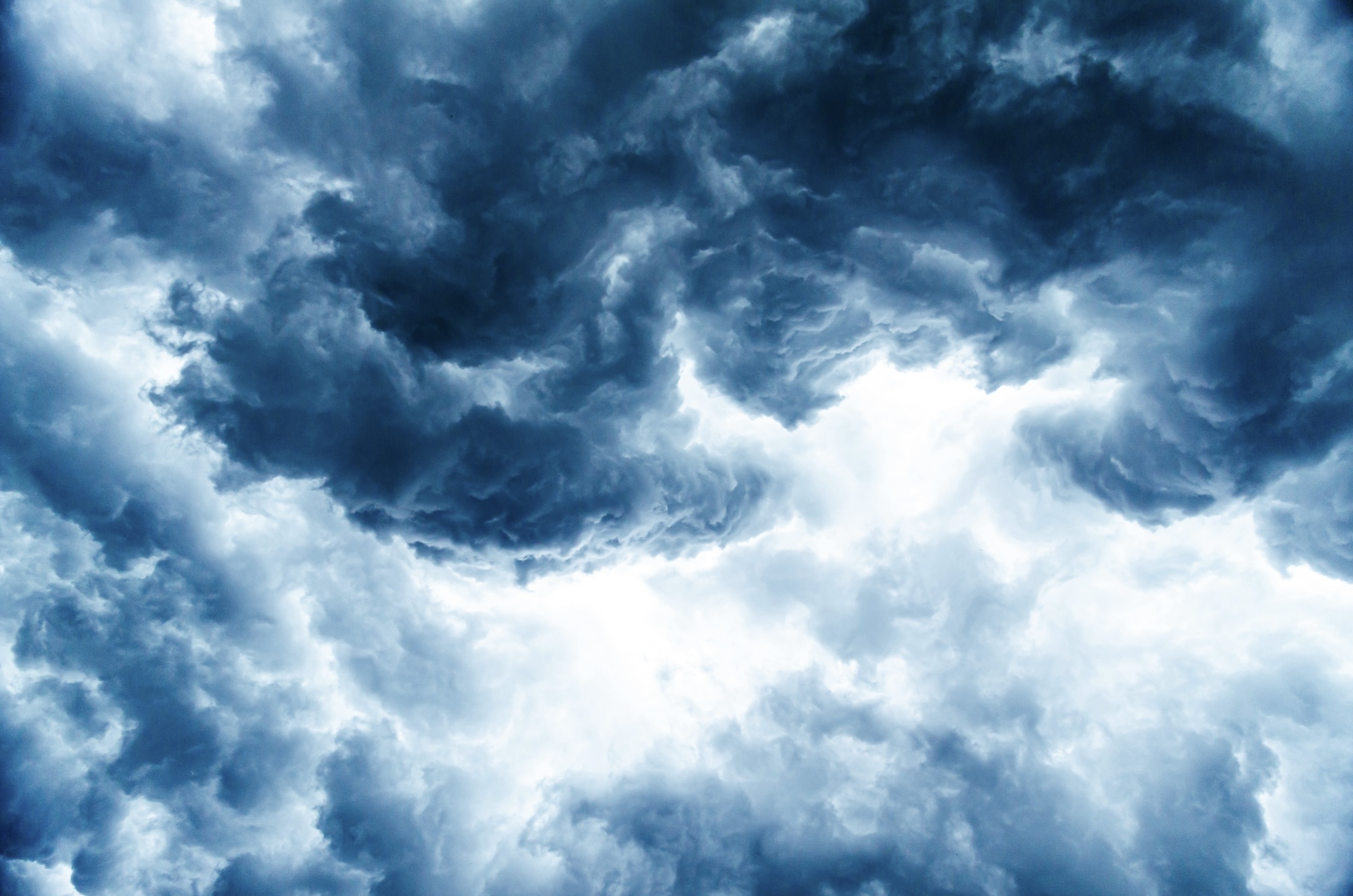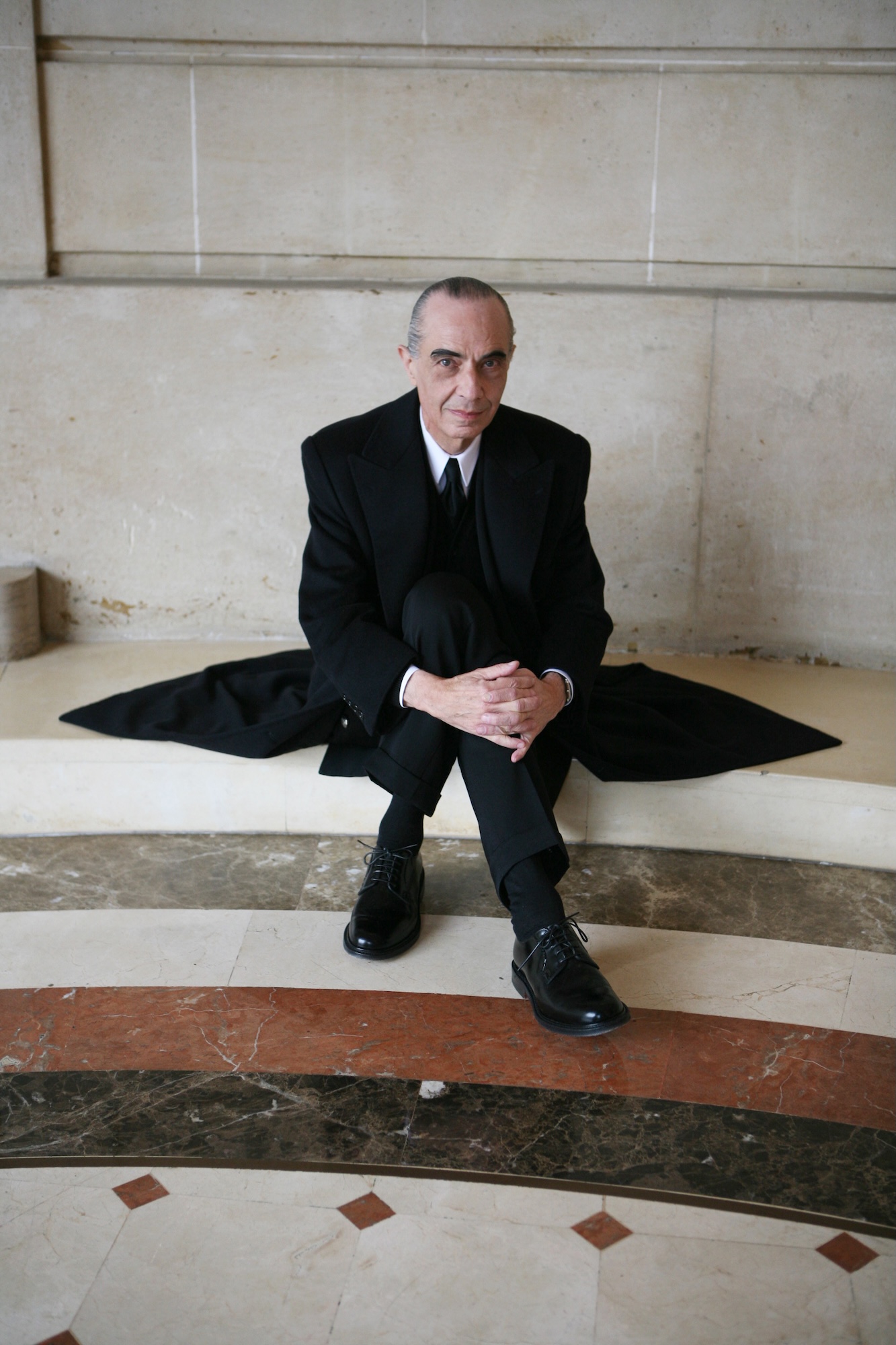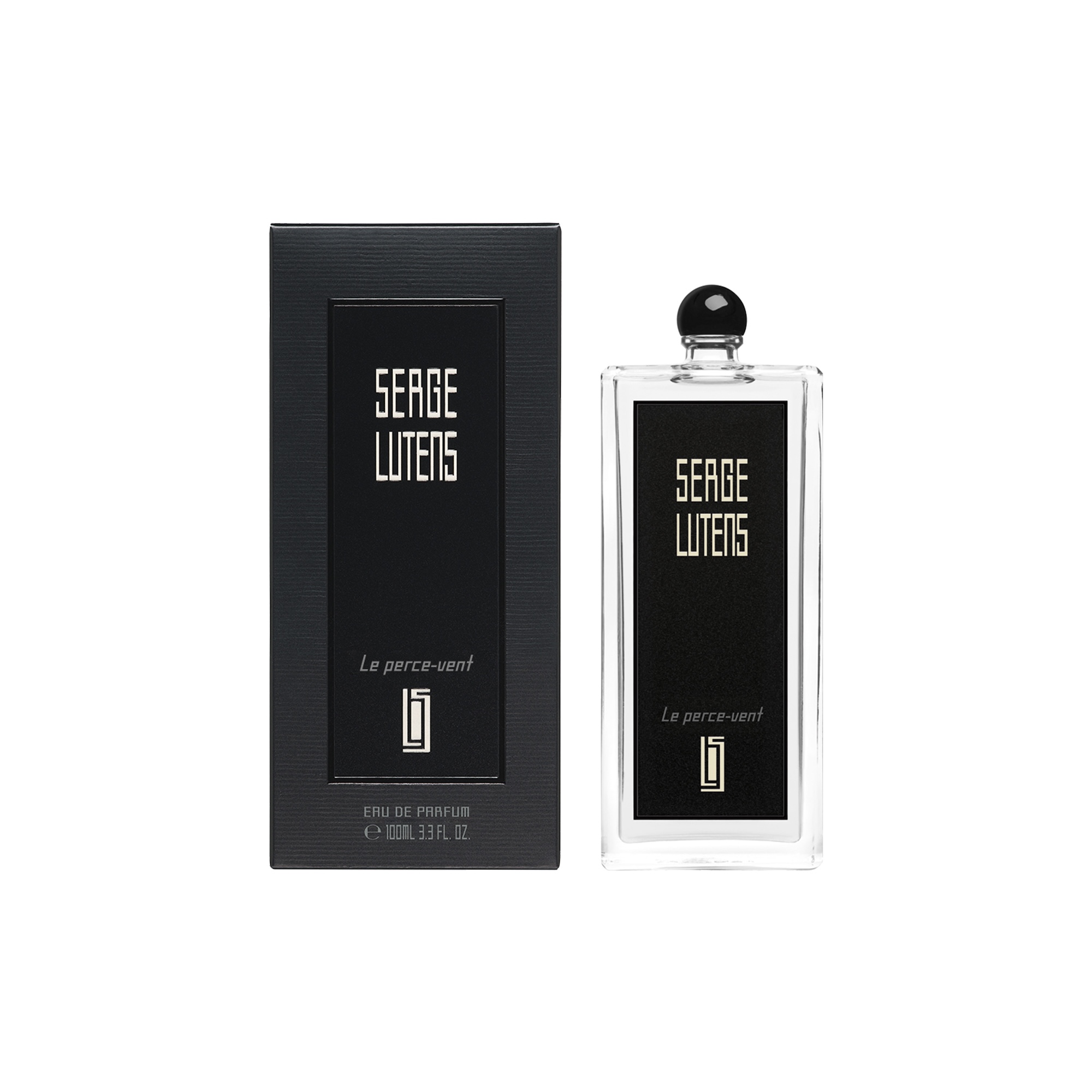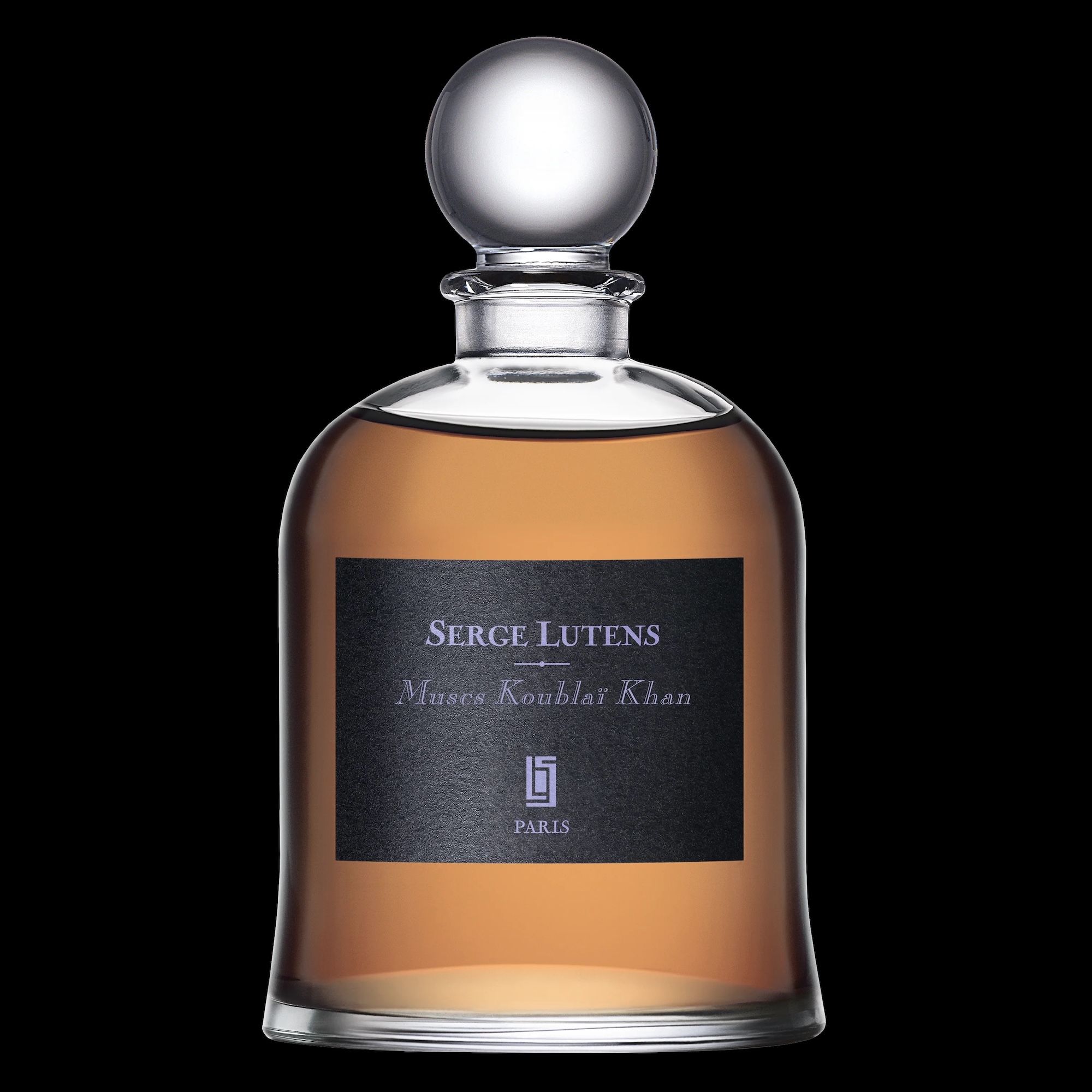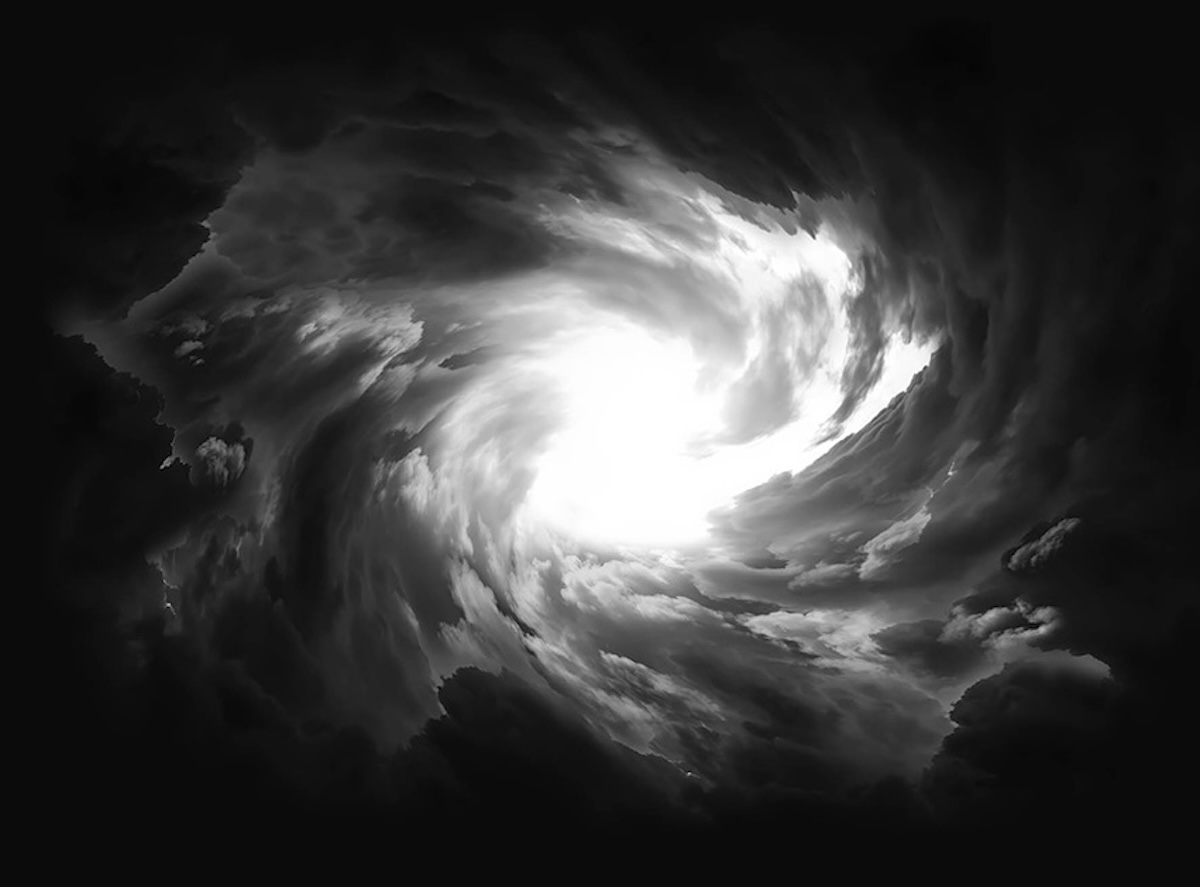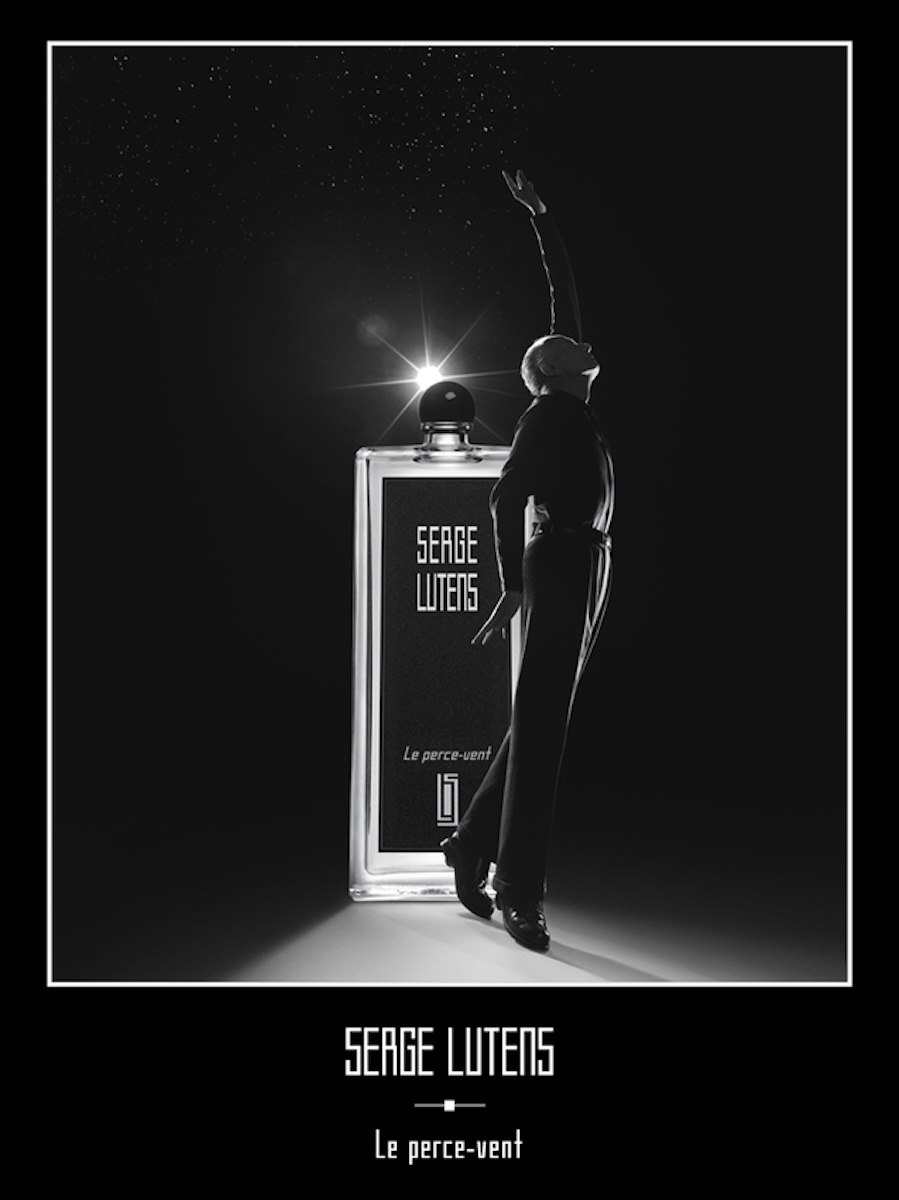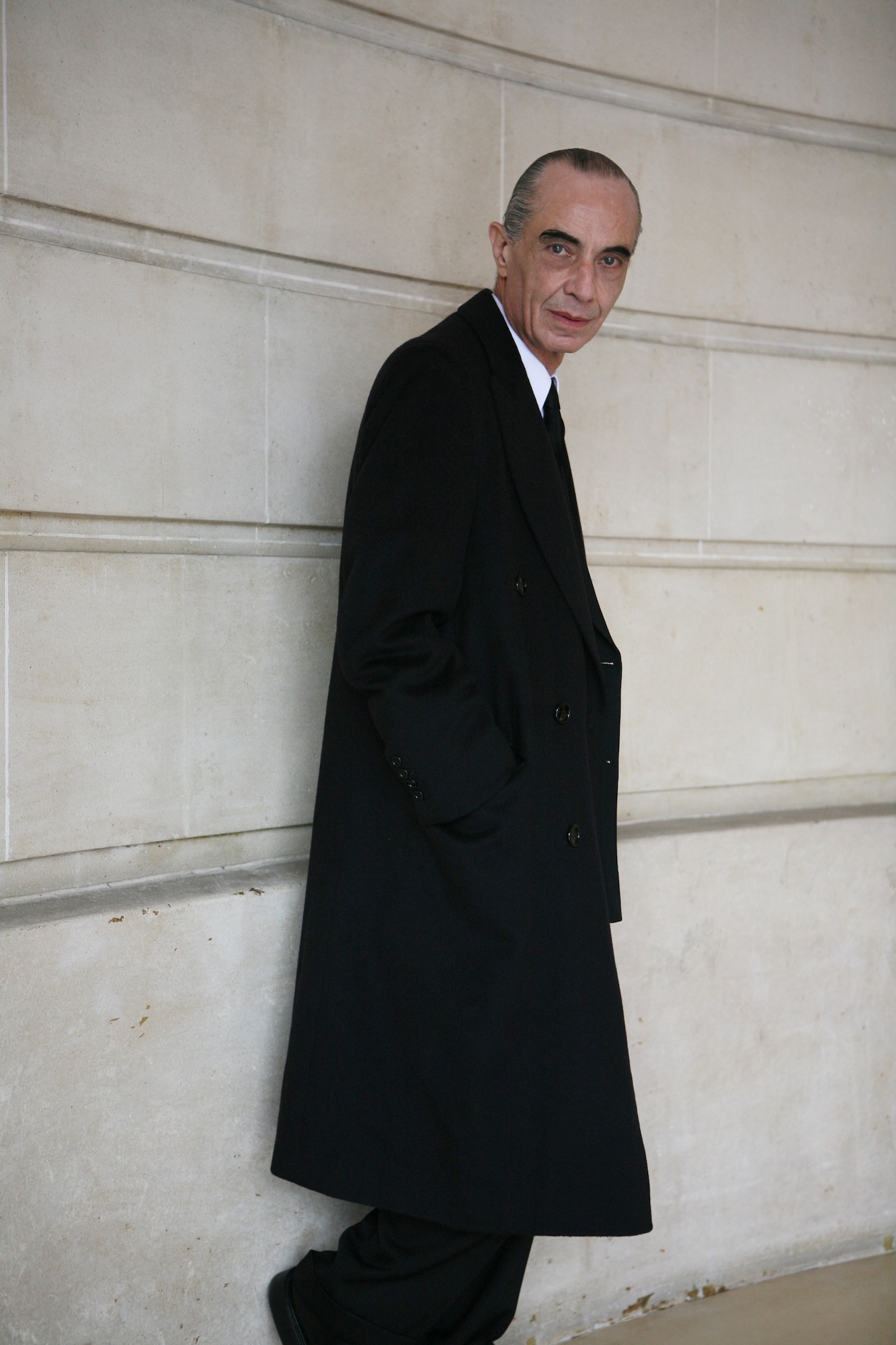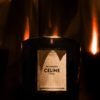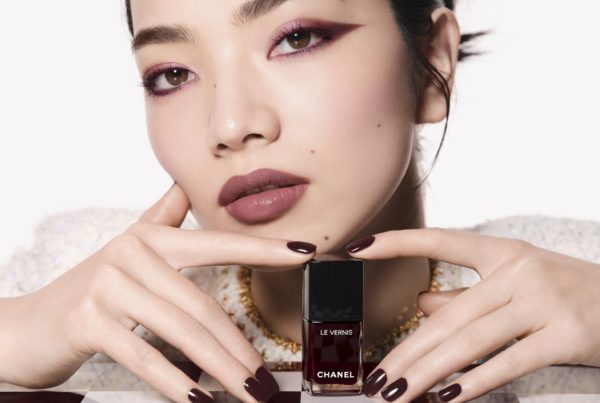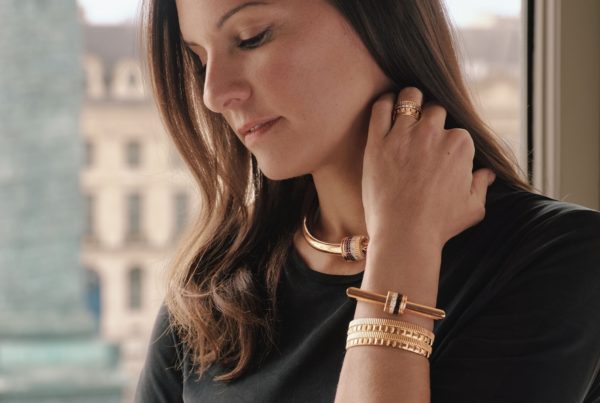Serge Lutens’ Le perce-vent blows hot and cold
Le perce-vent, the latest addition to Serge Lutens’ Collection Noire, is a paradoxical fragrance that begins with a sharp, mentholated camphor freshness, warming up to musk and patchouli. But Serge Lutens himself describes it best. Isabelle Cerboneschi
The latest addition to Serge Lutens’ Collection Noire is called Le perce-vent. The name naturally evokes snowdrops, flowers that brave the frost and bloom despite the cold, which undoubtedly explains the fragrance’s freshness, which is almost sharp at first.
This perfume opens with a minty, camphorous scent, like a piercing breeze, while clary sage adds a slightly bitter herbal note. The fragrance then takes on a more musky and woody tone. Patchouli gently settles in, adding a darker, earthy touch. The musk becomes more enveloping, almost animalistic, while the patchouli gives the fragrance a warm depth that contrasts with the freshness of the top note. This fragrance is paradoxical, just like its name.
To find out what lies behind this fragrance, we asked Serge Lutens, the prince of olfactory paradoxes, to tell the scent story.
Collection Noire Le perce-vent Serge Lutens, 100 ml
INTERVIEW
Your perfume Le perce-vent first strikes you with its name, which is both mysterious and evocative. How did this word, which precedes the scent, come about?
Serge Lutens: Le perce-vent is the eye of the cyclone, that is to say: the only place where one cannot be swept away by the surrounding madness; the only place that remains untouched… provided you are at the centre of this eye! It is a way of protecting yourself from the world, of taking a step back, because wherever you are, you feel uncomfortable. Why have we come to this and how can we act, express something? It is no longer possible to search, to look within oneself. All capacity for analysis has disappeared. The centre of the cyclone is the last secret royalty.
With this name, one thinks of snowdrops and feels the cold of the snow. The fragrance opens with an almost sharp freshness, like an invisible blade. What did you want to pierce by opening the composition in this way?
Nothing is more fascinating than a snowdrop. I transferred what this flower evoked for me to Le perce-vent; this flower that survives the winter, pierces the ice to find itself in the open air at the first ray of sunshine of the reborn spring. What strength and determination for such a delicate flower!
Musk softens the icy breath, warming it. Cold versus heat. Is it a struggle or a reconciliation? And between whom and whom?
But you speak of religious eroticism, that distance that can only be found within oneself. Indeed, this refuge is not a place but ourselves. There is always this contradiction in me, a sensuality contained in ice. Renouncement is pleasure. Contemplate the power of Velázquez’s painting The Venerable Mother Jeronima de la Fuente! Beauty is given by the ungrateful, it comes from elsewhere, from the austere. It becomes sublime! It is a painting I would love to own.
Muscs Koublaï Khan, 75ml ©Serge Lutens
This isn’t the first time you’ve worked with musk: Musc Koublaï Khan, Bois et musc, Clair de musc. There was also some in Féminité du bois, but it plays a different role each time. What is its role in Le perce-vent?
There are countless types of musk, including molecular reconstructions of exceptional quality. One of the most striking I have worked with is ‘Musc Koublaï Khan’, which is defined by its sensuality. To bring it to light, I had to force myself to go beyond seduction with aplomb. In this case, displeasing is an adornment. It is an opposition to oneself. When I created it in 1998, it seemed very daring, but today it has become a classic. With this fragrance, one can be adored by some who understand its meaning, but also hated by others. If you please, you find yourself on the crest, at the summit of inaccessibility. This perfume is the choice of insult, the affront displayed. The wind drill is a musk that is sucked in, air that is drilled. It digs, and you are sucked in by it.
Féminité du bois ©Serge Lutens
What does musk represent for you and in your perfumery?
Musk is sensuality, an animal scent, captivating. It can range from the most powerful to the freshest. Here, it is embodied in a metallic hollow impression that I had already explored in the perfume ‘Laine de verre’ a few years ago.
How was Le perce-vent born: what image or memory triggered its creation?
The feeling of only being able to gather myself and rebuild myself through solitude. Everything around me is spinning, going faster and faster, while my disagreement is becoming more and more obvious. I no longer adhere to anything except things that are intimate.
Le perce-vent seems to dialogue with the invisible: you can smell it without seeing it, like the wind. Is it a benevolent spirit?
I would say it’s more of a spirit of mistrust. It’s not a free entry, more of an emergency exit!
‘The windbreak is the eye of the storm, that is to say: the only place where one cannot be swept away by the surrounding madness.’
And what does it whisper when it settles at the base of the neck?
I don’t know how perfume is applied. It’s diffuse, an invisible confession. I can’t wear perfume at the risk of appearing to be an impostor in my own eyes. I enjoy making them and I’m interested in the moment of their creation. I follow each work session step by step. The perfume decides, speaks, creates, but we must also keep some dirty areas within ourselves; a royal fleur-de-lys dirt!
How would you like the wearer to feel?
No idea, it’s all so personal. I attach much more importance to disgust than to taste. Disgust is the hidden admission of so much rejection that it speaks volumes! Accepting disgust means accessing our own darkness. I would always start by asking someone what they reject. That’s where the key to each person lies. Disgust is the clue to understanding them. Personally, I try to overcome my disgust because I’m very interested in my own destruction, my own chaos. I feel like I’m restoring a mystical beauty, which is terrible, but I also feel the need to destroy.
The wind is often associated with the idea of freedom. Is this a personal metaphor?
No, here it is the idea of a prison of wind that represents society. I am at the centre, that is, at the centre of my disgust. Alone, there, I might be able to rediscover my taste. It starts with a grimace and perhaps ends with a reconciliation with oneself.
Each of your perfumes is like a new autobiographical chapter. What does this one tell?
No matter what is offered to me, nothing can seduce me. It is the moment when everything changes; it is very intimate, very attached to contradictions.
‘The windbreaker is like the invisible man who only becomes visible when he is in a form of opposition.’
And how does it fit into the grand narrative of your fragrances?
Le perce-vent is like the invisible man who only becomes visible when he is in a form of opposition. He is only alive in an intimate war. I remember a dream I had as a teenager, where I was falling. It began with a black ink stain on a notebook, caused by a broken pen that had been pressed too hard to finish one of the strokes. One half of the pen overlapped the other with its steel leg. At first, the stain was small, but then it grew to become a huge, hollow black hole into which I was falling. It was very oppressive! A few years later, I mentioned this dream to a psychoanalyst who said to me: “It’s you! What you look at, you become. You have a desire to disappear into the other, a kind of transubstantiation.” That’s how it is: when I look, when I love, I become. It’s an absorption, that’s what perfume is!
We are living in a very unsettling time, where everything is changing at a dizzying pace. Is perfume your way of responding to this world that is shaking us up and throwing us off balance?
Perfume came to me when I stopped using images. It is a conduit, a path, a precarious danger that leads me to words. It is a point stretched between images and words, as I often say.
And what seeds of hope do you hope to sow?
Every goal achieved is a death. This is necessary, self-inflicted and, inevitably, it is also a rebirth. We die a lot. Personally, I die quite often, it’s my way of life!

